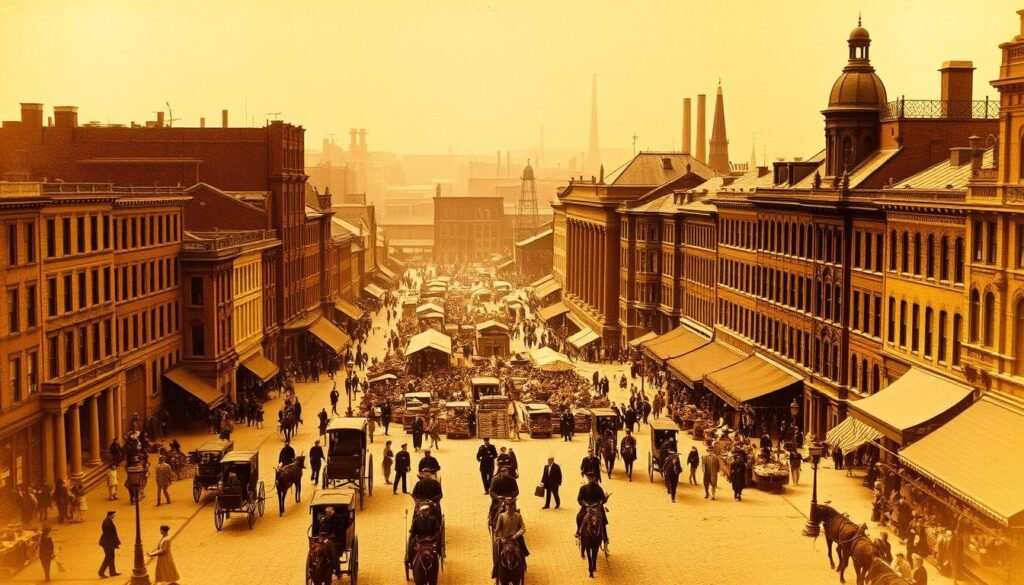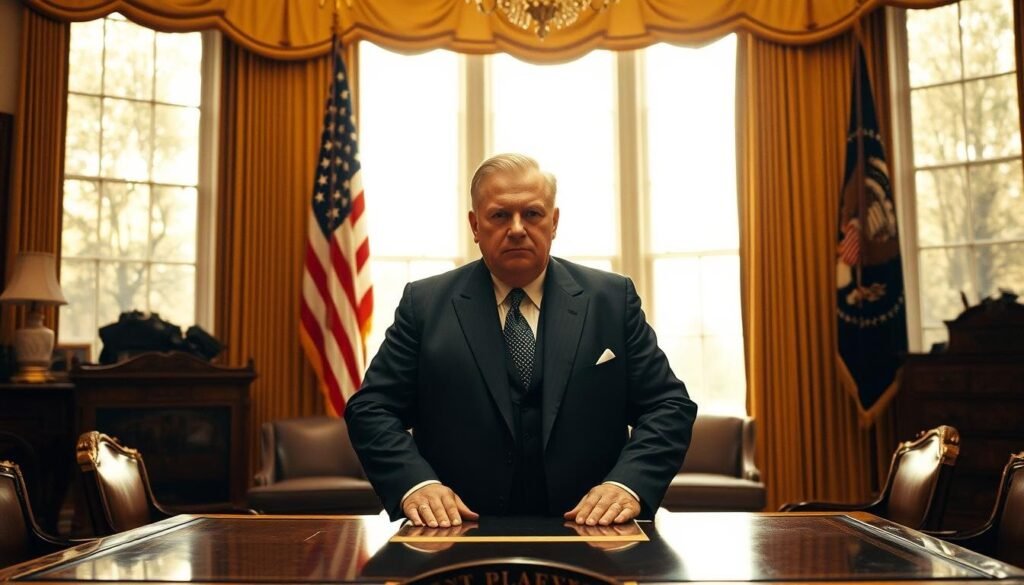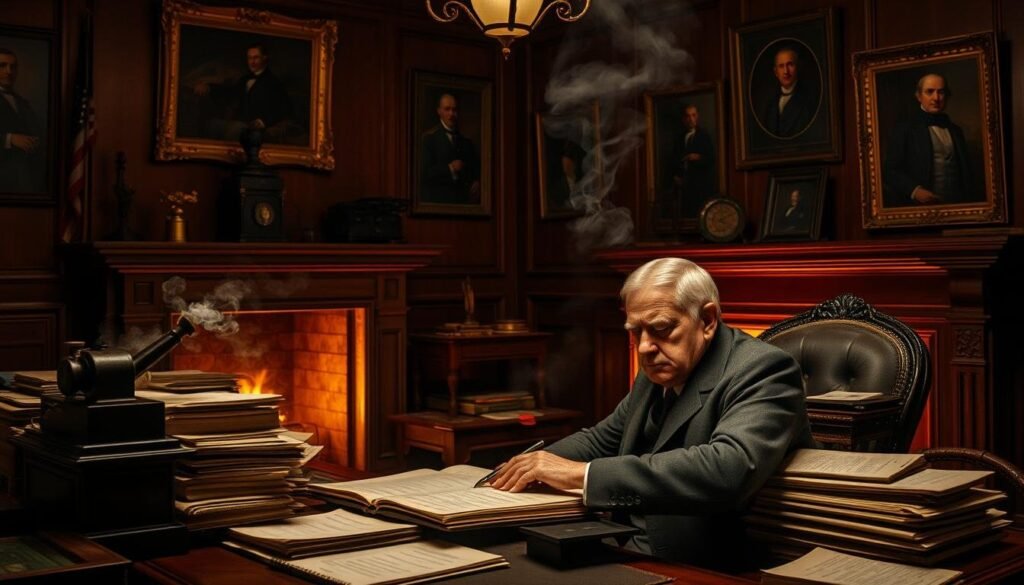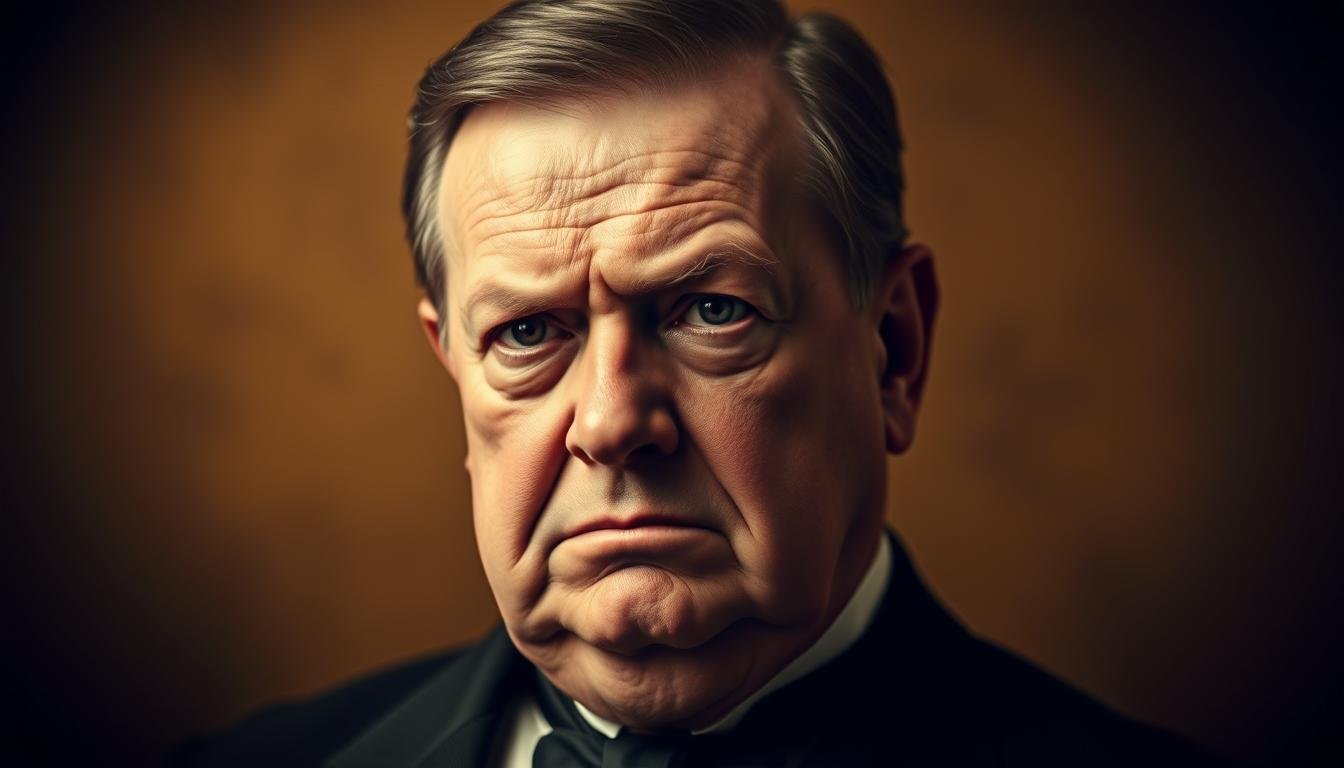Was Grover Cleveland a Good President? Have you heard of Grover Cleveland, the 22nd and 24th President of the United States? His true legacy is worth exploring. Cleveland was known for his honesty and strong beliefs.
This article will give you a closer look at Cleveland’s policies and decisions. You’ll see how he shaped America during his presidency. It will also cover the historical context and his lasting impact.
By diving into his biography and presidency, you can form your own opinion. Was he a good president? You’ll decide based on his actions and their outcomes.
Contents
- 1 Grover Cleveland’s Path to the Presidency
- 2 The Historical Context: America in the Late 19th Century
- 3 Cleveland’s First Term (1885-1889): Key Policies and Decisions
- 4 The Unprecedented Comeback: Cleveland’s Second Term (1893-1897)
- 5 Economic Leadership During Crisis
- 6 Cleveland’s Foreign Policy Approach
- 7 Domestic Policies and Social Issues
- 8 Was Grover Cleveland a Good President? Historical Assessments
- 9 Cleveland’s Presidential Legacy and Influence
- 10 Conclusion: Was Grover Cleveland a Good President?
- 11 FAQ
- 11.1 Who was Grover Cleveland?
- 11.2 What were Grover Cleveland’s significant policies during his presidency?
- 11.3 What was the Panic of 1893, and how did Cleveland respond to it?
- 11.4 How did Grover Cleveland’s presidency impact civil rights and social justice?
- 11.5 What is Grover Cleveland’s legacy, and how is he remembered today?
- 11.6 What were the circumstances surrounding Grover Cleveland’s re-election in 1892?
- 11.7 How did Grover Cleveland’s foreign policy approach affect U.S. relations with European powers and Latin America?
Grover Cleveland’s Path to the Presidency
Grover Cleveland’s rise to the presidency showed his strong appeal to Americans. You will see how his early life and political career set him up for the White House.
He started in politics as Buffalo, New York’s mayor. There, he became known for honesty and new ideas. His success led him to the New York State governor’s office, proving he was a true leader.
The Election of 1884
The 1884 election was a key moment for Cleveland. He ran as the Democratic candidate against Republican James G. Blaine. Cleveland’s campaign highlighted his integrity and reform efforts, winning over voters tired of corruption.
https://www.youtube.com/watch?v=ZnYhZoXD17k
| Candidate | Party | Electoral Votes |
|---|---|---|
| Grover Cleveland | Democratic | 219 |
| James G. Blaine | Republican | 182 |
Cleveland’s win in 1884 was a big deal. It showed Americans wanted change and reform. His commitment to these values shaped his presidency and left a mark on US history.
Learning about Cleveland’s journey to the presidency helps us understand his success. It also gives us a glimpse into the time he served.
The Historical Context: America in the Late 19th Century
The late 19th century was a time of big changes in the US. You would have seen the country grow fast, with new factories and cities popping up everywhere. [Was Grover Cleveland a Good President?]
Political Landscape
The politics of the late 19th century were complex. You would have seen the rise of powerful political groups, fights for civil rights, and debates over money and trade. The economy grew a lot, but there were also problems like fights between workers and bosses, and unfair income.

As the country grew, new problems came up. These issues made people want change. The late 19th century was a time of big change, and knowing this helps us understand Grover Cleveland’s presidency.
The economy changed a lot during this time. Big businesses and cities grew. New industries and railroads expanded, but this also raised worries about big companies, worker rights, and money distribution.
Looking at 19th century America helps us understand Grover Cleveland’s presidency better. This background is key to seeing his policies and decisions in context. It shows the lasting effects of his time in office.
Cleveland’s First Term (1885-1889): Key Policies and Decisions
When Cleveland took office in 1885, he had big plans. He used his veto power to guide laws that matched his vision. [Was Grover Cleveland a Good President?]
Veto Power and Legislative Actions
Cleveland was famous for his veto power. He blocked laws that didn’t fit his policies. He focused on:
- Pension bills he thought were too much
- Legislation that could cause inflation
- Private bills that favored some over others
Cleveland was all about honesty and simplicity in government. He aimed to cut down on spending and make the system easier to understand. His key domestic policies were:
- Improving the civil service system
- Lowering tariffs for fair trade
- Handling the federal budget surplus
These moves shaped Cleveland’s first term and his presidential legacy. His leadership and policies showed the value of integrity and careful spending in government.
The Unprecedented Comeback: Cleveland’s Second Term (1893-1897)
It’s surprising to learn that Grover Cleveland won the presidency again in 1892. This victory was big for Cleveland and the country. It brought back a leader who had been President from 1885 to 1889.

Cleveland’s second term was filled with big challenges. These challenges tested his leadership and the nation’s strength. One major issue was the economic crisis during his time in office.
Challenges of the Second Term
During his second term, Cleveland faced several key challenges, including:
- The economic crisis, known as the Panic of 1893, which led to widespread unemployment and business failures. [Was Grover Cleveland a Good President?]
- The need to maintain the gold standard, which was under threat due to the depletion of the Treasury’s gold reserves.
- Public and political pressure to address the economic downturn and provide relief to those affected.
Cleveland’s response to these challenges was marked by his characteristic determination and commitment to his principles. He worked tirelessly to navigate the country through these difficult times, often making unpopular decisions in the face of significant opposition.
The economic crisis required Cleveland to take bold action. He convened a special session of Congress to address the issues. His leadership during this period was crucial in shaping the nation’s response to the crisis.
Economic Leadership During Crisis
When the Panic of 1893 hit, Grover Cleveland’s economic leadership was put to the test. This severe economic downturn lasted from 1893 to 1897. It was marked by bank failures, business closures, and a big jump in unemployment. Cleveland’s team had to stabilize the economy and regain public trust.

Cleveland tackled the crisis with short-term fixes and long-term plans. He decided to keep the gold standard, a move that was hotly debated. The gold standard tied the dollar’s value to gold, seen as key for currency stability and attracting foreign investment.
Monetary Policy Decisions
Cleveland focused on keeping the gold standard. His team repealed the Sherman Silver Purchase Act to boost gold reserves. This move helped stabilize the currency and boost financial confidence.
Another key part of Cleveland’s strategy was managing the Treasury’s gold reserves. By keeping enough gold, Cleveland aimed to stop dollar speculation and keep the financial system stable.
Cleveland’s economic policies during the Panic of 1893 were complex. They included quick fixes and long-term plans. His commitment to the gold standard and efforts to stabilize the currency were crucial during this time.
Cleveland’s Foreign Policy Approach
Grover Cleveland’s foreign policy was all about staying out of trouble and being practical. His presidency showed a focus on keeping peace and looking out for America’s interests without using force. [Was Grover Cleveland a Good President?]
His views on foreign policy came from his conservative beliefs. He wanted to keep America out of European wars and focus on trade and growing its territory. This was especially true when dealing with Latin America.
Latin American Policy
Cleveland’s policy in Latin America was a mix of talking things out and being firm. A big event during his time was the Venezuela Crisis of 1895. Britain’s actions in a border dispute with Venezuela worried America. Cleveland’s team stood strong, pushing for Britain to agree to settle the issue through arbitration.
The following table summarizes key aspects of Cleveland’s foreign policy approach, including his Latin American policy:
| Region | Key Issue | Cleveland’s Approach |
|---|---|---|
| Latin America | Venezuela Crisis | Firm stance against Britain, advocating for arbitration |
| Europe | Non-intervention | Avoiding entanglements, maintaining diplomatic relations |
| Trade | Tariffs and Trade Agreements | Pragmatic negotiations to protect American trade interests |
Cleveland’s foreign policy is still debated by historians. Some see his cautious approach as wise, while others think it missed chances for growth. Yet, his aim to protect America and avoid conflict shaped his international dealings.
Domestic Policies and Social Issues
Cleveland worked on big social problems like labor disputes and civil rights. He wanted to make sure everyone was treated fairly and justly.
Civil Rights and Social Justice
Cleveland’s views on civil rights were complex. He believed in the rights of African Americans, but his actions didn’t always match his words. For example, his handling of the United States v. Waddell case was seen as not enough.
Labor disputes were a big challenge for Cleveland. Workers wanted better pay and safer work places. Cleveland tried to find a middle ground between workers and employers.
| Issue | Cleveland’s Approach | Outcome |
|---|---|---|
| Labor Disputes | Cautious intervention, seeking to balance labor and capital interests | Mixed results, with some disputes resolved but others escalating |
| Civil Rights | Support in principle, but limited action | Criticism from civil rights advocates for not doing enough |
Cleveland’s policies had different effects on Americans. Some saw his efforts as a step in the right direction. But others felt he didn’t do enough to solve deep social problems. [Was Grover Cleveland a Good President?]
Was Grover Cleveland a Good President? Historical Assessments
Historians play a big role in figuring out if Grover Cleveland was a good president. To see if he was, we need to look at what historians have said over time.
People have mixed views on Cleveland’s presidency. Some praise his honesty and integrity, calling him “Grover the Good.” They point to his fight against corruption and push for government openness as key wins.
But, others have criticized his economic policies, like his handling of the Panic of 1893. Some say his focus on the gold standard made things worse. Others believe his actions were needed to keep the economy stable.
Modern Historical Perspectives
Today, historians still look at Cleveland’s presidency, bringing new insights. A look at recent views shows a more detailed picture of his time in office.
| Aspect of Presidency | Positive Assessments | Critical Assessments |
|---|---|---|
| Economic Policy | Maintained gold standard, stabilized currency | Exacerbated economic downturn, limited relief measures |
| Foreign Policy | Assertive diplomacy, promoted American interests | Interventionist approach, strained international relations |
| Domestic Policy | Advocated for civil service reform, reduced corruption | Handled labor disputes conservatively, limited social reform |
Looking at these views helps us understand Cleveland’s presidency better. His complex legacy shows the many sides of his leadership. [Was Grover Cleveland a Good President?]
In short, judging Cleveland’s presidency needs a fair look at both good and bad points from historians. His legacy is still debated, showing the tough challenges he faced.
Cleveland’s Presidential Legacy and Influence
Exploring Grover Cleveland’s legacy shows how his decisions shaped American politics. His honesty and integrity made him a leader who stood firm, even when it was hard.
Cleveland’s impact on future presidents is clear in several areas. His economic leadership during crises set a new standard. This standard is still followed by presidents today, especially in handling economic troubles.
Lasting Legacy
Cleveland’s legacy is broad and significant, touching both domestic and foreign policy. Key parts of his legacy include:
- His dedication to reform and honesty in government.
- Setting economic policy precedents, especially in hard times.
- His focus on diplomacy and careful negotiation in foreign policy.
These aspects of Cleveland’s presidency have deeply influenced American politics. They continue to shape policy decisions and guide future administrations. [Was Grover Cleveland a Good President?]
Conclusion: Was Grover Cleveland a Good President?
You’ve learned about Grover Cleveland, a president who served two terms but not back-to-back. His time in office was marked by both achievements and challenges. This makes his legacy complex and interesting.
Cleveland was known for his honesty and integrity. He showed great leadership during the Panic of 1893. Yet, his presidency was also filled with controversy, especially on social and labor issues.
His legacy is a mix of good and bad, showing the ups and downs of his presidency. Historians still talk about his impact on America. Learning about his legacy helps us understand the tough times leaders faced back then.
See Also: The Presidency of President WW11: A Defining Era in History
FAQ
Who was Grover Cleveland?
Grover Cleveland was the 22nd and 24th President of the United States. He served from 1885 to 1889 and again from 1893 to 1897.
What were Grover Cleveland’s significant policies during his presidency?
Cleveland’s key policies included his use of veto power and monetary policy. He also handled labor and capital issues. His foreign policy, especially in Latin America, was significant.
What was the Panic of 1893, and how did Cleveland respond to it?
The Panic of 1893 was a severe economic crisis during Cleveland’s second term. He called a special Congress session to repeal the Sherman Silver Purchase Act. He also made other monetary policy decisions. [Was Grover Cleveland a Good President?]
Cleveland’s presidency had mixed effects on civil rights and social justice. He supported some progressive measures, like opposing the Chinese Exclusion Act. However, his overall record on civil rights was limited, and he faced criticism for labor issues.
What is Grover Cleveland’s legacy, and how is he remembered today?
Cleveland’s legacy is complex. Some see him as a champion of limited government. Others criticize his economic and social policies. He is remembered for his honesty and commitment to his principles, even when unpopular.
What were the circumstances surrounding Grover Cleveland’s re-election in 1892?
Cleveland’s 1892 re-election was significant. He had lost in 1888. He won the Democratic nomination again and defeated Republican incumbent President Benjamin Harrison in the general election.
How did Grover Cleveland’s foreign policy approach affect U.S. relations with European powers and Latin America?
Cleveland’s foreign policy focused on non-interventionism and maintaining good relations with European powers. He also took a strong stance on Latin America, especially during the Venezuela Crisis.

Hi, I am Tatum Bradford from Washington. I have a background in political science and work as a senior revenue officer. I love learning about U.S. presidents and sharing interesting facts about political history.

